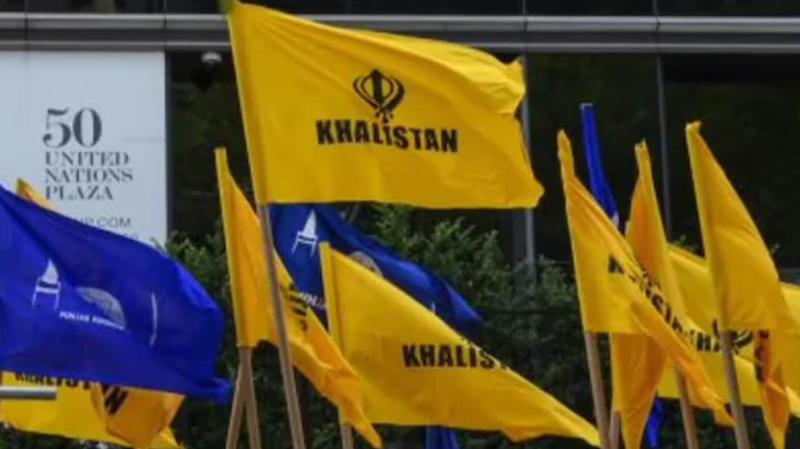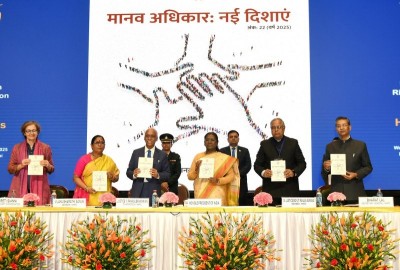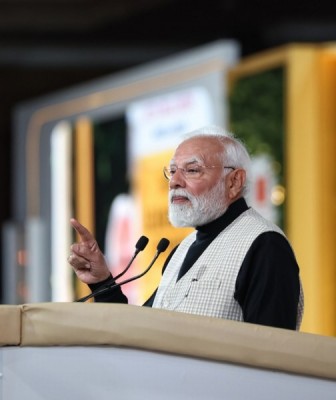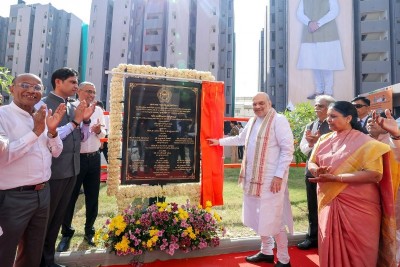
Khalistan: A movement that has turned against own roots
The recent discourse surrounding the Khalistan movement, as aired on the UK-based MATV program Gurdwara MiriPiri, exposes deepening fractures within the proponents of Khalistan in the diaspora.
What was once a rallying cry for a homeland rooted in justice and self-determination has been diluted by internal contradictions, factionalism, and a troubling drift toward opportunism and political expediency.
At the heart of the discussion is the alignment—or perhaps, misalignment—of key figures in the Sikh diaspora with Indian political leaders, most notably Congress leader Rahul Gandhi.
Anchors of the program, including Parminder Singh Bal, pointed to the troubling support for Gandhi from prominent Sikh diaspora figures such as Gurpatwant Singh Pannun of the banned Sikhs for Justice and Amrik Singh Gill, President of the Sikh Federation UK.
The anchors rightfully question how those who champion the cause of Khalistan can align themselves with the son of Rajiv Gandhi, the man whose administration oversaw some of the darkest chapters in Sikh history, including the 1984 anti-Sikh pogroms.
This unsettling endorsement by Khalistani elements raises crucial questions about authenticity and commitment. Are these figures truly dedicated to the interests of Sikhs in the diaspora, or are they merely opportunists willing to make alliances with those whose historical ties to Sikh repression are undeniable? As the anchors pointed out, calling these individuals “duplicate Khalistanis” may be harsh, but it is not without merit.
The program also addressed a critical point about the blacklist of Sikhs in Canada and the United States. This list has long been a thorn in the side of the Sikh diaspora. Yet, as the anchors noted, the silence of Sikh organizations on this issue is perplexing. If these organizations are truly committed to the cause of Sikh sovereignty, why have they not mounted a stronger defense for those caught in the web of international blacklists? Parminder Singh Bal’s personal account of being deported from Canada and the plight of 135 members of the International Sikh Youth Federation in Canada, who could not even afford the fees to appeal their status, highlights the stark realities of these bureaucratic mechanisms.
Perhaps the most damning critique in the discussion was aimed at the fractured vision of the Khalistan movement itself. Modern pro-Khalistan elements seem to have completely omitted Lahore from their dream of a Sikh state. It is not just a geographical oversight—it is an erasure of the very roots of Sikh political power. This disconnect raises fundamental questions: What is the endgame for these groups? Is it a truly sovereign Sikh state, or a nebulous entity cobbled together for convenience, and backed by Pakistan?
Further complicating the narrative is the in-fighting among Khalistan proponents. Self-styled “President of Khalistan” Sewa Singh Lalli lambasted the Sikh Federation UK and other organizations for undermining the movement from within, accusing UK-based groups of playing host to questionable figures like Rashtriya Sikh Sangat leader Rulda Singh. Singh’s assassination in Patiala by pro-Khalistan elements is a tragic reminder of the lethal consequences of internal strife. The fact that certain Khalistan supporters hosted Rulda Singh, a figure associated with the Hindu nationalist Rashtriya Swayamsevak Sangh, demonstrates the blurred lines between ideology and pragmatism. This internal friction risks derailing the movement’s objectives.
The idea of Khalistan, once a potent symbol of Sikh autonomy and resilience, is devolving into a hollow slogan, manipulated by leaders whose priorities are less about Sikh sovereignty and more about personal gain and political positioning. And this is why there are no takers for Khalistan, be it in Indian Punjab, or in the diaspora. It is only a handful few who continue to manipulate the youth, especially in the diaspora.
The anchors’ critiques underscore a critical truth: the Khalistan movement is doomed to fragment further.
(Photo Caption and Courtesy;Khalsavox.com)
Support Our Journalism
We cannot do without you.. your contribution supports unbiased journalism
IBNS is not driven by any ism- not wokeism, not racism, not skewed secularism, not hyper right-wing or left liberal ideals, nor by any hardline religious beliefs or hyper nationalism. We want to serve you good old objective news, as they are. We do not judge or preach. We let people decide for themselves. We only try to present factual and well-sourced news.







